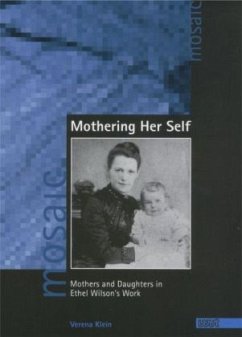The authoress of four novels, two novellas and one collection of short stories, Ethel Wilson (1888-1980) is considered one of the founding mothers of contemporary Canadian literature. Orphaned at a very young age, Wilson was educated in England, but spent most of her lifetime in Canada. All set in British Columbia, her works foreground the reality of Canadian women in the first half of the twentieth century and have been praised for their stylistic virtuosity, their convincing portrayals of Canadian nature and their persistent focus on human relations.This study proposes a mother-daughter reading of Wilson's ouevre, an aspect of her fiction which so far has only insufficiently been commented upon. Using Anglo-American mother-daughter theory as a starting point, this survey holds that Ethel Wilson may have used her writing as a means to come to terms with the traumatic events of her youth. Maintaining that it is the absence of the mother that functions as the common denominator throughout the Wilsonian canon, this study deals with the impact of motherlessness on Wilson's female protagonists.
Bitte wählen Sie Ihr Anliegen aus.
Rechnungen
Retourenschein anfordern
Bestellstatus
Storno

